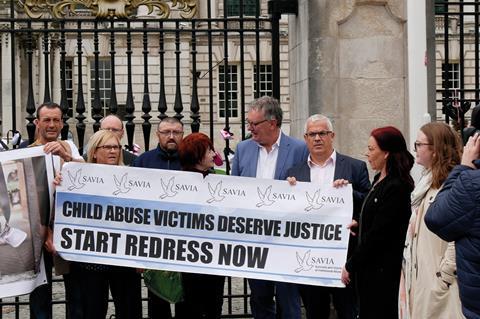On 20 October the Independent Inquiry into Child Sexual Abuse (IICSA), a statutory inquiry looking at institutional responses to child sexual abuse across decades in many types of organisations and institutions, will publish its final report. This will bring to an end the work of the public inquiry eight years after it was established in July 2014. Over that period IICSA has investigated a wide range of institutions in England and Wales, from the Catholic and Anglican churches, to child abuse scandals in local authorities such as Nottinghamshire and Lambeth, topics such as child sexual exploitation, children abused overseas, the internet and even alleged abuse in Westminster itself.

For those of us practising in the niche area of non-recent child sexual abuse civil cases, the last eight years have seen unprecedented forensic scrutiny of our area of work. As each investigation concluded, the inquiry published interim reports into those areas of investigation, some with recommendations, others stating that recommendations on that area would be made in the final report. Claimant lawyers acting for victims and survivors of abuse are all eagerly awaiting those recommendations. A key recommendation we hope the inquiry will put forward is a change to the law of limitation to align with current Scottish law.
Scotland’s Limitation (Childhood Abuse) (Scotland) Act 2017 provides that in non-recent child sexual abuse civil cases, the burden shifts from the pursuer to the defender where a defence is raised. Although limitation has been removed, there are two defences available to the defender in the context of delay. The defender has to show sufficient prejudice that a fair trial is no longer possible or that they would be substantially prejudiced by the retrospective application of the legislation.

It is important to recognise, notwithstanding all of the changes inherent in the Scottish legislation, that the burden remains on the pursuer to prove the abuse. This ensures compliance with Article 6 of the European Convention on Human Rights.
Many claimant and defendant lawyers, insurers and the Association of British Insurers gave evidence to the inquiry on reforming the law of limitation in phase two of IICSA’s accountability and reparations investigation. This specifically asked the question: should the law of limitation be reformed to make it easier for victims and survivors of non-recent child sexual abuse to bring compensation claims?
Broadly speaking, claimant solicitors were advocating for a change in the current law to align with the Scottish law on limitation in this area, while defendant voices were focused on advocating for caution to be exercised and that reform could have unintended consequences. However, it should be noted that the ABI released a statement on 5 June 2019 (before the IICSA hearing on this issue) stating: ‘We have listened to the compelling accounts of victims and survivors about the significant deterrent effect of the current law of limitation. No victim or survivor of abuse should be discouraged from seeking the compensation they may be entitled to. We now believe that there is a need for change and will support a review of the current law on limitation for CSA claims.’
As a lawyer working with victims and survivors of abuse, it is clear to me that the law in England and Wales currently punishes claimants for not coming forward sooner, when the very reason for their silence is the abuse itself which has a ‘silencing effect’. Research has shown that the average time delay between abuse and disclosure is 22 years. Limitation defences are routinely raised by defendants. Those defences impact heavily on a claimant’s ability to bring a claim or proceed with it to trial or full settlement. When seeking to persuade a court to allow a claim to proceed out of time under section 33 of the Limitation Act 1980, one of the factors the court must consider is the reasons for the claimant’s delay.
We know that non-recent child sexual abuse cases are very different from other areas of personal injury law, where the reasons for delay are not so intrinsically bound up with the delay itself. In abuse cases, the damage from the abuse itself will be the fundamental cause of the reasons for the delay, which will often include feelings of profound guilt and shame, mental health issues and not wanting family members to find out what has happened. This is therefore a unique area of personal injury litigation which requires a bespoke response to ensure that claimants are not disadvantaged by the silencing impact of the abuse committed upon them for which they are seeking redress.
IICSA, therefore, has a unique opportunity this month to help survivors of non-recent child sexual abuse in England and Wales get on to a similar legal footing to their Scottish counterparts. It should recommend a change in the law of limitation, and abolish the unfair and antiquated law on time limits for child abuse civil claims, which has often prevented legitimate compensation claims from going forward. It would be a huge missed opportunity if law reform in this area is not recommended by the inquiry, which would result in further injustice and unfairness to abuse survivors in England and Wales.
Let us hope that this does not come to pass and that reform is recommended, to help ensure victims and survivors of non-recent child abuse in England and Wales have the access to justice they so rightly deserve.
Kim Harrison is head of operations – abuse law, human rights and public inquiries – at Slater and Gordon, Manchester































No comments yet